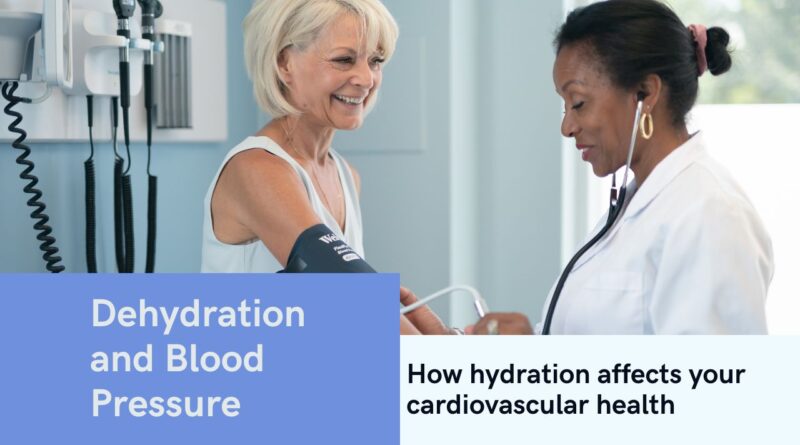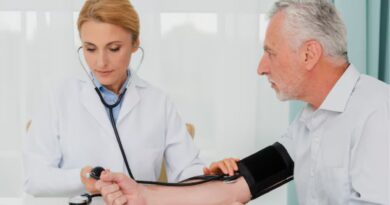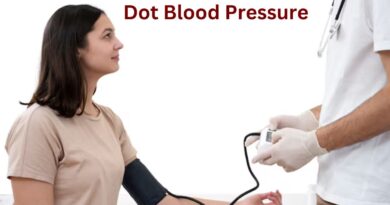Dehydration and Blood Pressure
What is dehydration?
Dehydration is a state where you lose more body fluids than you consume. For example, it can result from excessive sweating, severe vomiting, or failure to drink water. Mild dehydration can also affect how your body functions. As you are aware, most body functions have water requirements: blood circulation and temperature regulation, for example. When a person is dehydrated, such functions will become slow or less efficient.
If you are dehydrated, then your body will lack the right balance of electrolytes. Electrolytes help in delivering signals from the nerves to other parts of the body and relaxing the muscles in order to regulate blood pressure.
Key Points:
When your body loses too much water, it becomes dehydrated.
It adversely affects your ability to work efficiently.
Hydration helps in keeping your blood pressure controlled.
How Dehydration Influences Blood Pressure

Dehydration causes blood volume to decrease in your body, and then it becomes challenging for the heart to pump the blood throughout the body. This could result in low blood pressure. On the other hand, it results in a high pressure of blood due to an overabundance of the hormone vasopressin, a hormone that helps your kidneys retain water, and the blood vessels constrict and push up the blood pressure. “Understanding How Dehydration Affects Blood Pressure Using Omron Blood Pressure Monitor Symbols”
Important Points
Dehydration can reduce blood volume; this is blood pressure.
The release of vasopressin will elevate blood pressure.
Hydration balance helps keep blood pressure within a range.
Signs of Dehydration
Dehydration—when do you know that you are dehydrated? Among the early warning indications are dark urine, dry mouth, and dizziness. If these are neglected in time, dehydration can rapidly shift to severe-level issues. Some get a spell of fainting; others experience organ damage. In light of recent occurrences, be more alert towards your body’s emotions, especially during summer or after exercise.
Key Points:
Early signs include dry mouth and dizziness.
Dark-colored urine indicates a potential dehydration issue.
Early awareness of these signs will help avoid severe problems.
Dehydration and the Heart
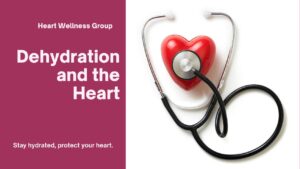
Dehydration requires your heart to work much harder. Your blood volume reduces when you are dehydrated, making it harder for your heart to pump blood around it. In the end, this may result in side effects like syncope, weakness, and tachycardia. Hydration keeps your heart pumping better blood while working to minimize the strain on it while keeping your blood pressure healthy.
Summary Key Points:
Dehydration forces the heart to work harder.
This results in tachycardia and weakness.
Fluid replenishment allows the patient to have a healthy circulatory flow to the heart.
How Much Water Should I Drink?
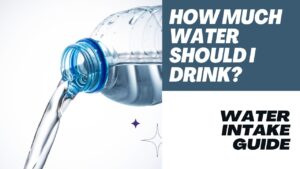
The amount of water will vary with your age, activity level, and environment, but most experts recommend drinking at least eight 8-ounce glasses of water per day, which is commonly referred to as the “8×8” rule. If you are more active or in a hotter environment, then you will require more. Drink water at regular intervals all day long, even when you do not feel thirsty.
Summary Points:
The “8×8” rule is eight glasses a day.
More if you are active or are in a hot environment.
Drink regularly to avoid dehydration.
Foods That Help Hydrate
Hydration does not happen only with water. Almost all fruits and vegetables can be employed as high sources of water for daily fluid intake. Examples are cucumbers, watermelon, oranges, and strawberries. They hydrate but also contain other vital vitamins and minerals that help in maintaining healthy blood pressure levels.
Key Points:
Fruits and vegetables help with hydration.
Some of the best foods are watermelon and cucumbers.
These are the basics that enhance hydration and blood pressure.
Electrolytes
Electrolytes include sodium, potassium, and magnesium. These are minerals necessary for the fluid and blood pressure management of the body. During sweating or urination, the body loses these minerals. You must replace them for effective hydration as you maintain your blood pressure in check. You can consume electrolyte solutions or vegetables that contain minerals for your proper hydration status as you manage your blood pressure.
Key Points:
Electrolytes help the body regulate hydration.
Sodium, potassium, and magnesium are key
Keep fluid balance proper by replenishing them.
Exercise and Dehydration

Exercise increases fluid loss due to sweat, so it is important to drink water before, during, and after the exercise. If one does not consume enough water or electrolytes during long durations of exercise, one might feel dizziness, experience muscle cramps, or just feel very tired. Long workouts, hence, should include replacement of water and probably some sort of electrolyte for proper hydration and prevention of a drop in blood pressure.
Key Points:
Exercise increases fluid loss due to sweat.
Drink before, during, and after physical activity.
Replenish water and electrolytes for better hydration.
Dehydration during Hot Weather

Dehydration accelerates with hot weather due to excessive fluid loss. Increased body sweat with high temperatures and lost electrolytes and water deplete one’s body. When it’s scorching, one should drink water constantly, even when they are not exercising. This is highly recommended to those who had their past heart conditions since dehydration affects the blood pressure issue negatively.
Key Take-Aways:
Hot weather increases the risk of dehydration.
Drink water at all times in the hot weather.
Hydration is one element of a heart condition.
When to See a Doctor
If you feel that your dehydration is messing up with your blood pressure or the activity of your heart, make sure to consult a medical professional. Dizziness, fainting spells, and a blood pressure that usually runs either high or low are all typical symptoms of a larger medical problem. Your physician will be able to evaluate this problem and assist you in developing a plan to keep well-hydrated and maintain healthy blood pressure.
Take-Aways
If you are suffering from dehydration, seek medical care.
Your dizziness could mean something deeper.
A doctor can check hydration and blood pressure.

